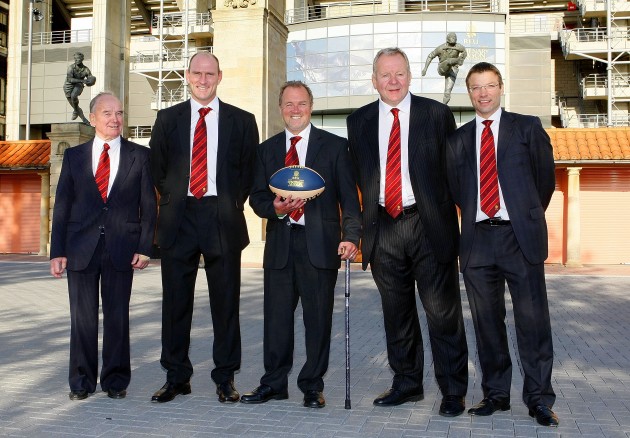With the Rugby World Cup now less than a year away, Alastair Hignell finds Twickenham Station's disabled access leaves a lot to be desired
There was a lunch meeting last week about the Varsity Match, held in a hospitality box at Twickenham stadium. At its conclusion, the affable convener Rob Cole, a director at Westgate Sports Agency, offered to help former England international and Bristol full-back Alastair Hignell as he set out on his homeward train journey to Brighton. Higgy, as he’s affectionately known within rugby circles, has MS and uses an electric scooter.
A few of us waited for Rob to return so we could say our formal goodbyes. Five minutes became 10 minutes, and then 20. Another 20 minutes passed and still no sign of Rob, we mused over where could he be?
Rob finally returned and we had our answer. He’d walked to Richmond station with Higgy because there was no disabled access at Twickenham station.
Consider that for a moment. A wheelchair user going to watch England play rugby cannot alight at the proper train station. In this day and age, that’s a disgrace.
More than 6,000 people a day pass through Twickenham station, which will be full to bursting next September when the 2015 World Cup kicks off. Will the station be modernised in time for that England-Fiji tournament opener?
Yes and no. An ambitious project, involving residential and retail building, has been put on hold because of local opposition. It could take years to resolve.
So Network Rail has opted for an immediate £5m package of improvements that include – hooray – step-free access between the ticket office and platforms. And, for that matter, a bigger area to help cope with the crush of fans being shepherded on to trains after a Test match (cue the sheep noises).
“A proper access-for-all scheme, like they’re doing at the nearby Whitton station (not in time for the World Cup), involves huge lifts that cost millions each,” a Network Rail spokesman told me. “The work at Twickenham won’t be like that but there will be a stair lift for disabled passengers. And it will be completed by the World Cup.”
I passed on this good news to Higgy. “A stair lift will be no good for powered wheelchairs,” he replied.
So he will be obliged to go through the usual travel aggro, and when you realise that the hassle starts before he even embarks on a journey, and continues long after he’s back home, you get an idea of how demoralisingly tedious life can be for a disabled person.
Take Higgy’s trip to this aforesaid lunch meeting. First, he had to ring up to alert railway staff of his intended journey – that can take ten or 15 minutes even after getting past the recorded messages.
Still, it meant that someone was going to meet him off the train with a ramp at Clapham Junction. Except that no one did and, worse, the train started pulling away with him stuck on it, and a fellow passenger had to shout and bang on the window to stop the train.
Ah well, at least he would be okay at Richmond, because after ringing up he knew a taxi would be waiting to whisk him to Twickenham. The railway company is obliged to pay for this if no disabled access is provided at the destination station.
But no, foiled again! “The staff were surprised to see me and when they phoned for a taxi it was going to be an hour and a half’s waiting time. So I caught a black cab and paid myself.”
Once he was home, he set about trying to get a refund for his taxi. And to that can be added this week’s journey, because this time the platform lift at Clapham wasn’t working, so they said he’d have to carry on to London. “But I was in danger of missing my appointment (a speaking engagement at a school) so I ended up getting a train to Woking and catching a taxi to Farnham. I do about three school talks every fortnight and the nearer you are to London, the worse it is.”
You might laugh if it wasn’t so shameful.
It’s about ten years since Higgy conducted a disability audit of English Premiership grounds and concluded that “there wasn’t a single club that tried to solve problems before they arose. Not one of them was proactive. Not one of them felt the need to make changes unless they were asked to. All of them were reactive, waiting for a complaint or a request to be made before deciding to take action”.
He can’t judge the clubs now but he can say with authority that ‘reactive’ behaviour to the disabled is the norm in everyday life. People are nice as pie, the on-the-ground railway staff at Brighton and Victoria are brilliant, but the problems keep recurring and Higgy, and many others like him, are having their lives blighted. “It’s a downer,” he says. “It’s something we have to deal with, but it should be better.”
Quite so. It should be better. In the meantime, we should be thanking Higgy and the other 800,000 UK wheelchair users for their forbearance.







